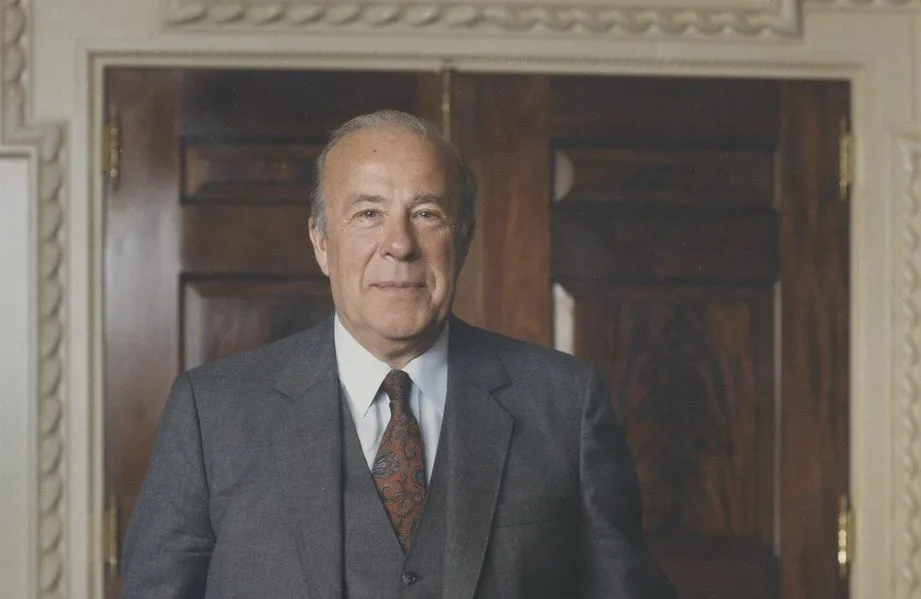Reflecting on a 20-year career in public office under presidents Ronald Reagan and Richard Nixon, former Secretary of State George P. Shultz cautioned against today’s polarizing political landscape, remembering instead his efforts to maintain relationships with both international and domestic opposing groups in a virtual webinar organized by the Hoover Institution on Tuesday.
Shultz served as President Nixon’s Secretary of Labor from 1969 to 1970, then as Secretary of the Treasury from 1972 to 1974. Under Reagan, he played a major role in shaping U.S. economic and foreign policy as Secretary of State from 1982 to 1989. Shultz is one of only two individuals to have held four different federal Cabinet posts.
Throughout the talk, Shultz contended that creating personal and strong relationships with others in positions of power is of paramount importance in politics, referencing how he cultivated trust between the U.S. and Chinese governments during his years as Secretary of State.
“I went over to Beijing,” Shultz said. “I said, ‘you put on the table everything you want to talk about, and I’ll put on the table everything I want to talk about; we’ll make an agenda out of that, and we’ll make our way through that agenda.’”
“No publicity, nothing,” he added. “Just two people working at this agenda. And we worked through a lot of problems. I would try to do something like that [to prevent military conflict today].”
Shultz cited the Obama administration’s summit at the Sunnylands Estate in 2016 as another example of this practice, where leaders from 10 southeast Asian countries met with U.S. officials in an informal and relaxed setting.
In this light, Shultz went on to reflect on the dynamics he saw between Democratic and Republican groups on the Hill. He explained that a large part of his cordial relationships with those of the opposing party stemmed from the extended time everyone would spend together in D.C. He said that the majority of senators and congresspeople lived in the District full time and spent long hours at their offices, creating opportunities for conversations as people and friends rather than officials.
“You trust each other and can have candid conversations,” said Shultz of those experiences. “Nowadays, no one’s there.”
During the briefing, Shultz fielded questions from an audience concerned primarily with hearing stories from his time in Washington, D.C.
When asked about whether the U.S. could be entering a “new Cold War” with China today as tensions mount between the two world powers, he conceded that “we seem to be heading that way,” but such a conflict should not be necessary.
Still, he added, the U.S. needs to “be tough, no doubt about it.”
As Secretary of State, Shultz had inherited a strained U.S.-Soviet relationship as a result of the actions that Reagan’s predecessor, Jimmy Carter, took during his tenure. Shultz would go on to effectively oversee these delicate diplomatic ties, pursuing arms agreements like those that later helped soothe Cold War tensions.
He met with an ambassador from Russia weekly and described their mindset going into those conversations: “If we see a little weed, let’s get it out. We don’t need any more problems.”
Tuesday’s event was part of Hoover’s Virtual Policy Briefings, a series of weekly online webinars intended to create a space for the public and the Stanford community to hear from experts in the fields of policy and economics. Director of the Hoover Institution Tom Gilligan moderated the talk via Zoom.
Contact Sariah Hossain at sariah.hossain19 ‘at’ gmail.com.
